Mastering the Basics of Skincare
Even though more and more consumers have become savvier and well-informed, I still got a lot of questions on my socials about skincare in general. I totally get it tho. One of the reasons why I came up with my own skincare line is because I realized how complicated and overwhelming skincare concept can be. Since the day 10-step Korean skincare introduced itself, although it helped myself personally to delve deeper into the skincare world, it can leave us with so many question marks. Too many product category, too many actives, too many do's and don'ts.
In this post, I will try my best explaining skincare from the very basic. I will also update it from time to time to make sure I cover everything.
Do you need to use skincare?
Everyone's skin is different. We gotta understand that skin is an organ, and organ is supposed to be complex. We all have different skin chemistry, which leads to different skin needs. Some people might have skin that requires high maintenance like mine. Going back and forth to dermatology clinic was my routine when I was a teenager because of acne. On the other hand, there are people who have flawless skin without having to do anything except washing their face. That's how personal skin is. However, there are some basics that everybody needs to do to maintain their skin's health.
The basics
There are three things that the skin needs; skin needs to be cleansed, moisturized, and protected.
Cleanse
I am assuming we are all some busy individuals who are active. Some of us might spend long time outdoor, where our skin is continuously exposed to dirt and pollution. It is therefore important that we wash our face twice a day and use facial wash to remove all of those dirty stuffs,
"Can't I just use my regular body wash?"
Well, if your skin has no problem with it, then sure. But facial wash is specifically formulated with less surface active matter so that it does not strip our natural oil. Often times, it also contains other ingredients to make sure it is gentle for the face. Understanding the importance of mild facial cleanser, I intentionally incorporated surfactant derived from coconut and lipids in Calming Cleansing Stick so that it does not disrupt healthy skin barrier.
Moisturize
Skin acts as the first line of defense. In order for it to do its job, it requires enough hydration and moisture. Not only that dry skin can feel uncomfortable, it is more vulnerable to invading pathogens.
There are many ways to introduce hydration and moisture to the skin. My personal favorite is the layering method. Not ten step, obviously, but to focus on three key aspects namely humectant, emollient, and occlusive. And you can get it from different types of skincare products, e.g., toner, serum, moisturizer. Our Barrier Protecting Hydrating Stick, for instance, is jam packed with emollients and occlusive like shorea butter, sunflower oil, and linoleic acid to help reduce trans-epidermal water loss (TEWL).
Protect
Ultraviolet rays emitted by the sun can have detrimental effect on skin. Prolonged exposures to UVA and UVB rays can lead to sunburn, premature aging, wrinkling, and skin cancer. The World Health Organization (WHO) recommends to use sunscreen as part of a comprehensive sun protection strategy when UV levels are three and higher.
There are different sunscreens, which offer various protection factors. It is recommended to opt for sunscreen that has at least SPF 30 for your daily use. If you use SPF 50, that will provide you with better protection since we tend to apply less sunscreen that the recommended amount.
That being said, how much sunscreen to apply is also crucial. Generally, we have to apply 2 mg/cm2 or a quarter teaspoon all over the face so that we get similar protection as the claimed SPF on the product. It is also recommended to reapply throughout the day, because sunscreen effectiveness can diminish overtime. Especially if you are sweating or wiping your face.
"I put sunscreen every day. But why do I still tan?"
Sunscreen can only protect you from tanning to some degree. It means, it is still possible that your skin get tan. I would suggest you to also wear protective clothing like hat and sunglasses.
"What kind of sunscreen should I choose if I have acne-prone skin?"
Any kind. Each skin can react differently. Some are sensitive to organic/chemical sunscreen, some are more sensitive towards inorganic/mineral sunscreen. Furthermore, it really depends on how the product is formulated. Do a patch test for 48 hours when trying a new sunscreen to see how your skin react.
What about other skincare?
After you get the basics covered, you can then start exploring ingredients that offer other properties like brightening, antioxidant, soothing etc. Ingredients that can treat your skin concern apart from what has been mentioned above. Obviously, you don't have to introduce your skin with too many actives. You want to keep it simple and tailor to what your skin really needs.
I will give you a real-life scenario. As for myself, I have oily, dehydrated, and acne prone skin with other concern like skin texture. My skin needs extra care to mitigate these problems. That's where retinol and alpha hydroxy acids (AHA) come in the picture. We are all familiar with salicylic acid and benzoyl peroxide as anti-acne actives. However, my skin does not seem to like it that much. I noticed my skin got excessively dry when I used anything with those two ingredients in it. Meanwhile retinol helps to clear up my acne faster, without making my skin irritated. So, I use retinol serum every night with no problem. And since retinol also accelerates skin cell turnover, I therefore have to use exfoliating toner with AHA every morning to remove the dead skin cells. Using AHA religiously also helps with my skin texture.
Your skin might be different. Your skin might be too sensitive to use retinol, and you might want to try bakuchiol instead. Your skin might not like alpha hydroxy acid, so you can try polyhydroxy acids (PHA) or even enzymes for more gentle exfoliation. Or you might have other issues like dull skin and hyper pigmentation that requires other actives like vitamin C.
Every skin has different needs.
So, what to look for?
There are gazillion raw material suppliers offering various ingredients out there. But here are several prevalent skin concerns and the corresponding common ingredients to seek out:
- Dry skin: glycerin, sodium PCA, zinc PCA, hyaluronic acid, propylene glycol, urea, panthenol, squalane, plant oils, plant butters, ferment filtrates, ceramides, cholesterol
- Greasy & oily skin: salicylic acid, niacinamide, kaolin, tea tree
- Acne: salicylic acid, benzoyl peroxide, retinoid, potassium azeloyl diglycinate, alpha hydroxy acids
- Dull complexion: alpha hydroxy acids, L-ascorbic acid, ascorbyl glucoside, tetrahexadecyl ascorbate, sodium ascorbyl phosphate, magnesium ascorbyl phosphate, niacinamide, glutathione, alpha-arbutin, potassium azeloyl diglycinate, licorice root extract
- Excessive sebum production: niacinamide, potassium azeloyl diglycinate, zinc PCA, centella asiatica
- Irritated skin: panthenol, bisabolol, allantoin, aloe vera, cannabidiol, oat extract, ectoin, chamomile extract
- Premature aging & sun damage: tocopherol, ferulic acid, resveratrol, coenzym Q10, astaxanthin, arginine, green tea extract, vitamin C derivatives
That's a lot of information, right? But here is the thing... When I look for new product, I personally would also consider the entire formulation rather than hyper fixate on the individual ingredients. Yes, they do have skin benefits. However, as a cosmetic chemist, I am aware that the effectiveness and safety of a skincare product often depend on how well its ingredients work together in a balanced formula.
Furthermore, apart from the "actives" or "key ingredients" that are often marketed by brands or beauty gurus, there are so many functional ingredients within a formulation, which often times are the actual unsung hero of a product and they are hardly ever mentioned, simply because they don't sound interesting for marketing purpose. There are also other aspects like pH level, stability, and the overall texture of the product, which also contribute to its user experience.
How to build your skincare routine
Considering the aforementioned basic key points cleanse, (treat), hydrate, and protect, the most common routine usually looks something like this:

You can follow the same routine, but you don't have to. You can skip toner and serum, and go straight to moisturizer and sunscreen. You can even skip the regular moisturizer because you have day cream with SPF ready in your cabinet. There is nothing wrong with using multi-functional product, as long as it covers your skincare needs.
Don't get too confused with product category like "concentrate", "essence", "ampoule", and whatnot, because it is mainly just marketing term. If you want to try incorporating these products, the key is to start from the lightest to the heaviest texture.
Also, keep your routine concise and effective. Because you will have higher chance to be consistent. Moreover, using too many products and actives at the same time can increase the chance of skin inflammation. So, it's not that you cannot use both exfoliating toner and retinol serum in the same routine. You can, but your skin might hate it and might get irritated as a result.
What I also previously mentioned, each of us has different skin chemistry. This is the reason why I always encourage people to actually try the product themselves to find out whether their skin likes it or not. Some products might work on some people's skin but not on yours, and vice versa. And that's normal.
Products marketed towards specific skin type... What's that about?
We have seen it so many times.
"For dry to normal skin"
"For oily skin"
"For acne prone skin"
Many skincare brands categorize their products to address the unique needs of oily, dry, or sensitive skin. However, dermatologists and skincare experts argue that these labels are often oversimplified and may not accurately represent the complex nature of individual skin concerns. Skin conditions can be multifaceted and influenced by various factors, including genetics, lifestyle, and environmental elements. In reality, skincare ingredients, when carefully formulated, can be universally safe and beneficial for individuals with diverse skin types.
Personal preference and individual responses to specific ingredients play a significant role in skincare. While some may prefer lightweight gels even though they have dry skin type, for example, others might opt for richer creams despite their oilier skin. It's essential to understand that skincare is a personal journey.
Conclusion
Skincare is frequently portrayed as a complex routine demanding a multitude of products and a substantial time investment. However, it is essential to recognize that an effective skincare regimen does not necessarily have to be overwhelming. A streamlined routine with well-formulated products can be just as impactful as an elaborate one. By understanding your skin type and concerns, you can establish a manageable and efficient skincare routine that promotes skin health.
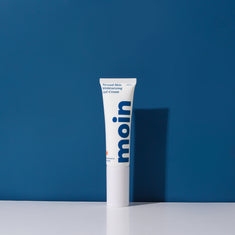
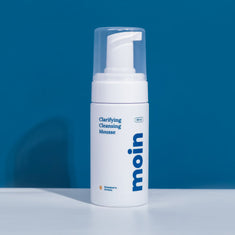
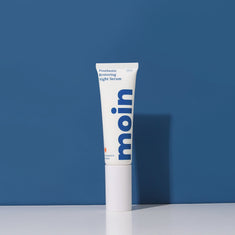
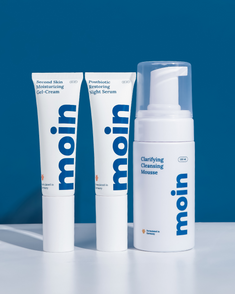

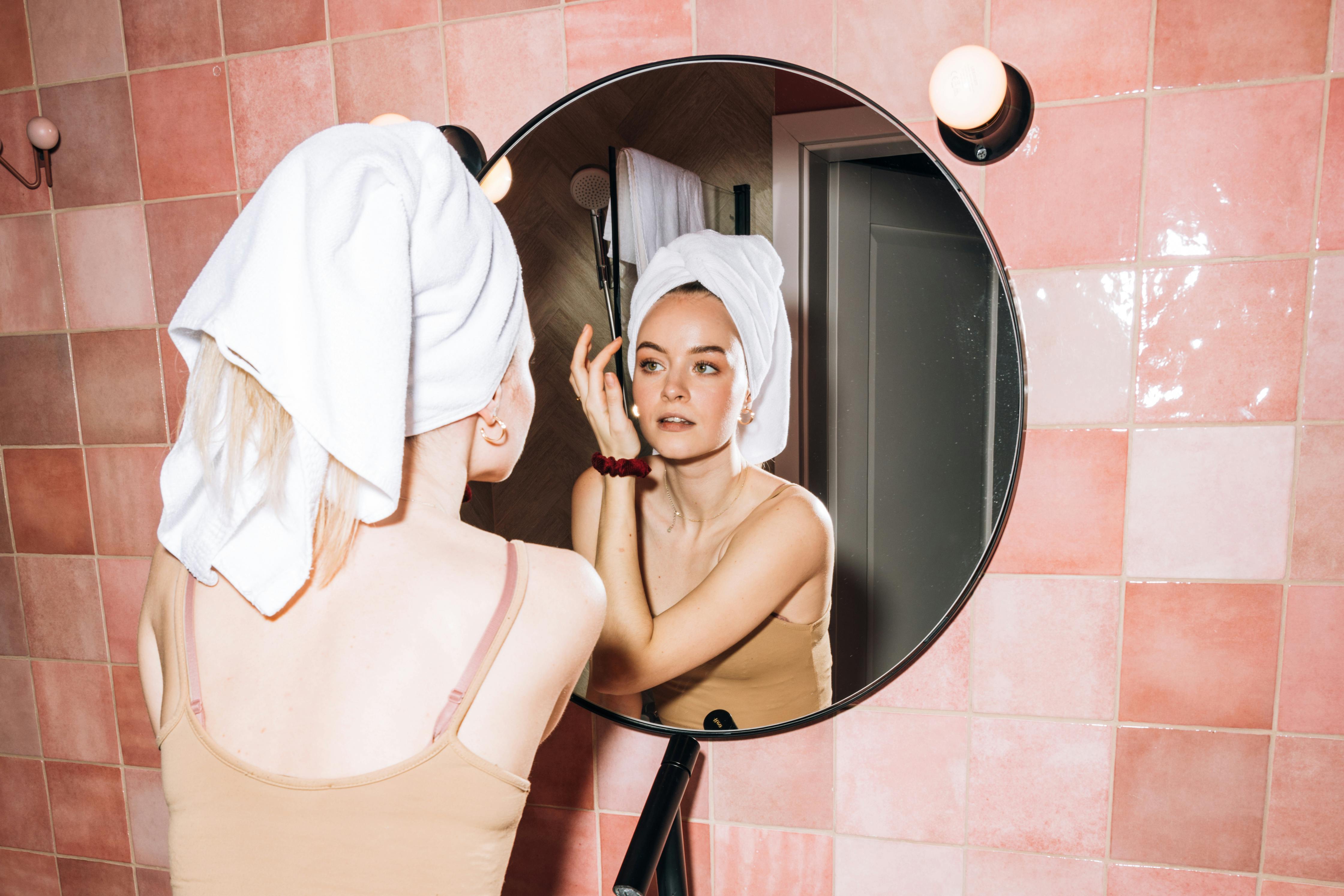
comments (20)
Setelah baca ini, aku udah gak bingung lagi tentang tahapan dasar merawat kulit. Makasih banyak ka Gita. Tulisannya sangat informatif dan mencerahkan.
thank you kak! bimbang tiap hunting skincare takut salah kebutuhan, takut kemakan marketing. that’s all i need to hear. very enlightened 🥺
Hi Gita, thank you your website useful to read
Terima kasih kak gita untuk ilmunya. Tulisannya sangat bagus dan mencerahkan🙌🏻
thank you kak gitaa! it such an amazing and thoughtful article 🥺 helps me out of the overwhelm self’s care product at market